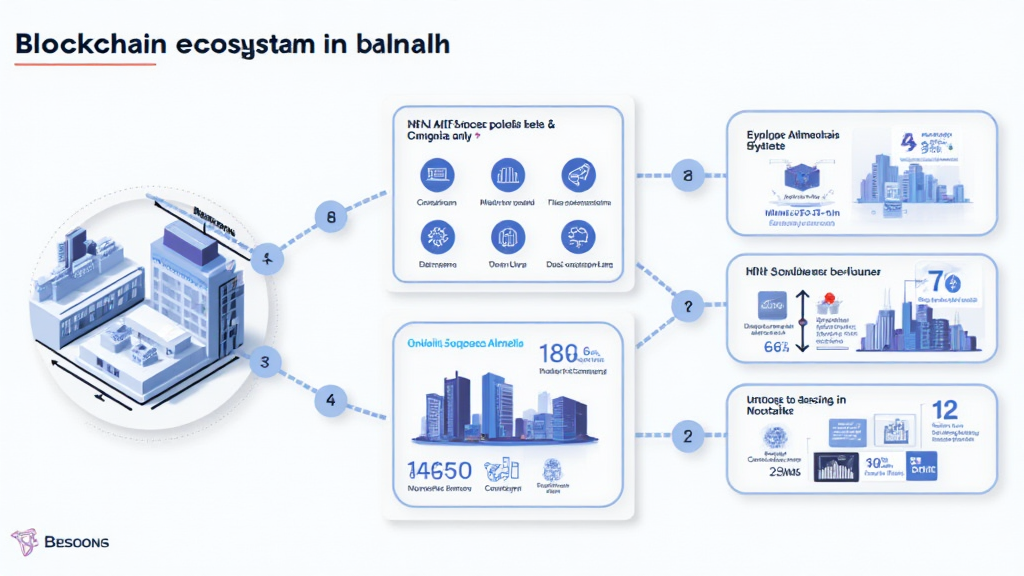Introduction
As the cryptocurrency market evolves, Vietnam stands at a pivotal intersection of innovation and regulation. With an estimated 4.1 billion USD lost due to DeFi hacks in recent years, understanding the HIBT Vietnam token classification is essential for investors and regulatory bodies alike. The tiêu chuẩn an ninh blockchain (blockchain security standards) in Vietnam are not just about protecting assets but ensuring a robust framework for growth in the digital asset industry.
This article delves into the intricacies of HIBT Vietnam token classification and its significance within the Vietnamese regulatory context. It aims to illuminate the regulatory landscape, provide insights for investors, and highlight the potential growth of the cryptocurrency market in Vietnam, particularly as the user base continues to expand.
Regulatory Landscape for Cryptocurrencies in Vietnam
Vietnam’s approach to cryptocurrency regulation is unique, combining innovation with conservative oversight. As of 2025, the government has introduced a series of guidelines that affect how tokens like HIBT are classified and utilized. This regulatory context influences everything from token issuance to trading practices within the country.

- The State Bank of Vietnam (SBV) has clarified its position on cryptocurrencies, treating them as non-currency legal entities.
- New regulations also set the stage for Initial Coin Offerings (ICOs) and Security Token Offerings (STOs), defining what constitutes a security versus a utility token.
The HIBT token, as a new entrant in the Vietnamese market, must navigate these waters. Certain classifications offer varying degrees of regulatory scrutiny, impacting how developers and enterprises approach token utilization. For instance, a token classified as a utility may face less stringent regulations compared to a security token.
Understanding HIBT Token Classification
To appreciate HIBT Vietnam token classification, one must understand the core principles behind categorizing tokens. Generally, tokens can be divided into three primary categories:
- Utility Tokens: Designed to provide access to a product or service.
- Security Tokens: Represent ownership in an underlying asset, subject to regulatory scrutiny.
- Stablecoins: Pegged to a stable reserve, often used for transactions.
In Vietnam, the HIBT token is anticipated to be classified predominantly as a utility token aimed at enhancing blockchain security measures. This classification aligns with the goal of promoting ethical blockchain practices amid rising security concerns, allowing it to integrate seamlessly into Vietnam’s growing tech landscape.
Market Dynamics and User Growth in Vietnam
The demand for cryptocurrencies in Vietnam is surging, fueled by factors such as increased internet penetration and a youthful demographic eager to engage in digital economies. Reports indicate that Vietnam’s cryptocurrency user base grew by 300% from 2020 to 2023, showcasing an unprecedented interest in blockchain technology and digital assets.
This growth presents an optimistic backdrop for HIBT’s entry into the market. The ever-increasing user base not only indicates greater acceptance but also a push toward enhanced regulatory frameworks to accommodate a variety of digital assets.
The Role of Education in Regulatory Compliance
For tokens like HIBT to succeed in a complex regulatory environment, education becomes paramount. Key stakeholders, including developers and investors, should be well-versed in compliance requirements:
- Understanding the distinction between utility and security tokens.
- Staying updated with the regulations set forth by the SBV.
- Participating in community efforts to shape crypto policy in Vietnam.
By fostering a more informed community, HIBT can navigate compliance more effectively while ensuring that users are aware of the risks and benefits associated with cryptocurrency investments.
Challenges and Opportunities Ahead
Despite the favorable conditions, the journey for HIBT in Vietnam is fraught with challenges. Regulatory ambiguity can sometimes stifle innovation, with companies hesitating to launch due to fears of harsh penalties or backlash from regulatory agencies. Furthermore, cybersecurity threats remain prevalent, reiterating the need for robust tiêu chuẩn an ninh blockchain to protect assets.
Yet, within these challenges lie opportunities:
- The potential for innovation in blockchain solutions specific to Vietnamese needs.
- Collaborations with government bodies to shape progressive regulations that foster growth.
Future Trends in Vietnam’s Cryptocurrency Market
As blockchain technology matures, so too will the financial mechanisms surrounding it. Experts predict that by 2025, we will see:
- Greater regulatory clarity that encourages investment.
- An increase in the number of legitimate token offerings and improved security standards.
- Expansion of educational initiatives and resources for stakeholders.
Understanding these trends will be crucial for the HIBT token and its long-term viability. The key will be maintaining agility within the regulatory framework while fostering a trusted, secure environment for users.
Conclusion
In conclusion, the HIBT Vietnam token classification within the Vietnamese regulatory context is not only a critical area of focus for compliance but also a significant driver for investment in the region’s tech landscape. As investors, regulators, and developers continue to adapt to shifts in the market and regulatory environment, collaboration and education will play key roles in shaping the future of cryptocurrencies in Vietnam.
By leveraging opportunities and addressing challenges head-on, HIBT stands poised to not only thrive within the increasingly competitive landscape but also contribute positively to Vietnam’s digital economy. Staying informed and compliant will be imperative as we navigate this evolving terrain.
In closing, remember that this article serves as a foundational guide. It is essential to consult local regulators for personalized advice regarding cryptocurrency investments.
—
Expert Contributor:
Dr. Minh Nguyen, Blockchain Specialist
With over 15 publications in blockchain technology and a proven track record in auditing major financial projects, Dr. Nguyen brings a wealth of expertise to the discussion on token classification and regulatory best practices.
For more insights into the evolving landscape of cryptocurrencies, visit hibt.com.





